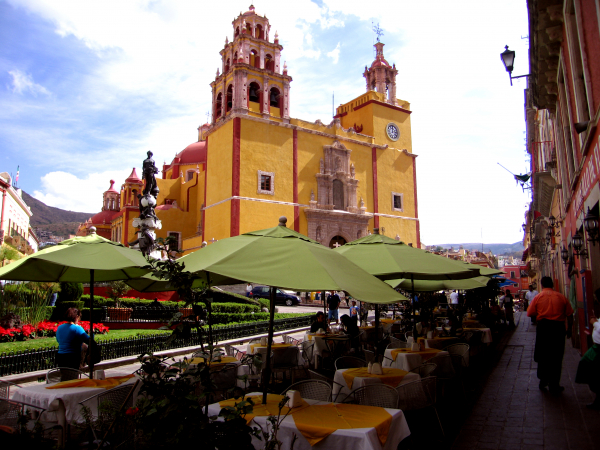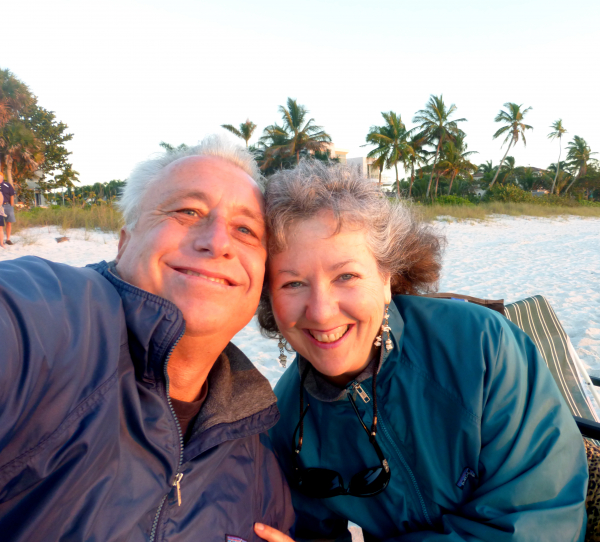
Some say it’s impossible.
Others simply dismiss the notion outright, even if they are curious. How do we live on less than $30,000 per year while traveling through Thailand, Vietnam, Mexico, Central America and other exotic locations? We don’t give up luxury, nor do we deprive ourselves. Rather, we are retiring for less.
So what is our secret?
Our approach is very simple: We have chosen not to dedicate our time and money to support a complicated infrastructure.
For almost three decades we have wandered the globe living in countless countries. We have purchased new computers and digital gadgets, refreshed our wardrobes many times over, received extensive medical care, and we have biked, hiked, scuba’d, taxi’d, bused, sailed and flown endless miles.
How is this possible?
Downsize the house, car, and Uncle Sam
Our housing expenses include our annual fees, maintenance, repairs, and utilities for our home in the States, as well as hotel rooms or apartments we may rent while on the road. To ameliorate this cost, sometimes we house sit. We have been car free for years now, but our transportation costs include airline tickets, visas, passport renewals, taxis, Uber, boats, trains and tuk-tuks.
If you look at your own expenses, you will see that housing and transportation take a good chunk of your income. Becoming mindful of what goes in to support these two areas of your life will be eye-opening. Take a close and honest evaluation of this state of affairs for yourself. Understand precisely where your money goes and why.
Another area that takes fiscal attention is taxes. Income taxes are something you can control by restructuring your portfolio. Interest from corporate bonds and short-term capital gains are taxed at income rates that are higher than qualified dividends and long-term capital gains. This restructuring is something to think about and can save you a significant amount of money yearly.
In most cases, housing, transportation, taxes, food and entertainment are the top areas of cash outlay in a person’s economic life. Modifying any or all of them — which is exactly what we did — will have a significant impact on your annual expenses.
Retiring for Less
All that being said, we have a great deal of fun living on less than $30,000 per year. Spending wisely, we get the most bang for our buck. For instance, living in a resort location in the States, we have access to a swimming pool, tennis courts, and a workout room without having to lay out cash for their purchase or maintenance. We eat high-quality meats, fish, fruits, and vegetables because we shop at farmer’s markets and watch for the rotating grocery sales to purchase when prices are attractive.
When we visit foreign countries, we live like the locals, eating fresh foods from the open markets, and we rent apartments, house sit or rent hotel rooms by the month. In this way we have maid service, gardeners, Wifi, and no utility expenses.
Walking instead of driving whenever possible, we also choose low-cost entertainment options such as tennis, hiking, biking, swimming, going to museums and art shows, and enjoying local festivals and celebrations. Volunteering for projects wherever we live, this provides us with new learning experiences and a sense of fulfillment. We share time with friends either cooking for them ourselves or going out to lunch instead of opting for higher-priced dinners. And when it’s time to hit the road, we take full advantage of current airline deals and travel packages.
Reaping the benefits of simplicity we place more emphasis on creating a life of meaning rather than a life of “‘stuff.”

What about you?
So you think you can’t make it on $30,000 yearly? How about $60,000 or $100,000 or more? All this means is that your net worth will need to be high enough to maintain these levels of spending.
No matter where you are in this continuum, you can profit from doing any of the following:
Simplify your personal infrastructure. Know where your money is going, and decide whether it’s worth it to you. Do you want to keep up the pace of your current spending? Make your funding priorities reflect your values.
Plan your retirement tax strategy now.
Know there is a balance in the exchange of time and money. Do you want more money, or do you want more time? Your choice here will affect your future. Be clear about what you want.
Remember, the best things in life are free. Friendships and connection to society are based more on your attention and time, rather than on your money. Watching the sun set with a loved one — sharing life experiences together — creates memories that will far outlast anything you can purchase.

About the Authors
Billy and Akaisha Kaderli are recognized retirement experts and internationally published authors on topics of finance, medical tourism and world travel. With the wealth of information they share on their award winning website RetireEarlyLifestyle.com, they have been helping people achieve their own retirement dreams since 1991. They wrote the popular books, The Adventurer’s Guide to Early Retirement and Your Retirement Dream IS Possible available on their website bookstore or on Amazon.com.
What an interesting post. It makes me reevaluate our retirement.
Hi Victoria,
I’m happy you enjoyed my post. I’m also happy that perhaps we have given you some options to think about for your retirement, and I hope those options open up new worlds for you.
Best,
AKaisha